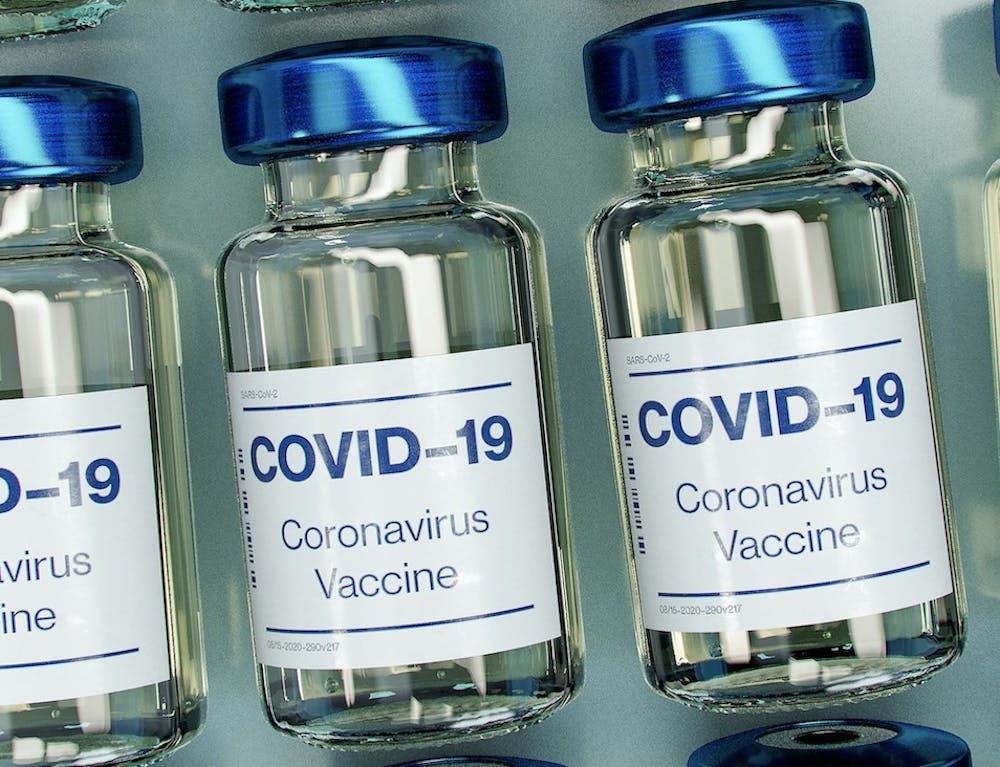Editor’s Note: This listicle is part of a series by The Ball State Daily News summarizing five stories from around the world. All summaries are based on stories published by The Associated Press.
Officials in Oregon call for outside help as extreme weather fuels fires, a Russian hacker known as "bot master" to be sentenced in the US, California launches the largest free school lunch program in the US, fraud charges brought in second Wisconsin 2020 election case and Indiana University can require COVID-19 vaccinations makes up this week's five national stories.
Calls for outside help as extreme weather fuels Oregon fires
The threat of thunderstorms and lightning has prompted officials in fire-ravaged Oregon to ask for help from outside the Pacific Northwest to prepare for additional blazes as many resources are already devoted to a massive fire in the state that has grown to a third the size of Rhode Island. The 537-square-mile (1,391-square-kilometer) Bootleg Fire is burning 300 miles (483 kilometers) southeast of Portland in and around the Fremont-Winema National Forest, a vast expanse of old-growth forest, lakes and wildlife refuges. Evacuations and property losses have been minimal compared with much smaller blazes in densely populated areas of California.
Russian hacker known as 'bot master' to be sentenced in US
Federal prosecutors are seeking a lengthy prison sentence for a Russian hacker known internationally as the “bot master” on charges he operated a network of devices used to steal computer credentials, distribute spam emails and install malicious software. Peter Levashov, 40, pleaded guilty in 2018 to conspiracy, wire fraud, identity theft and other charges that he operated several networks of hijacked computers, known as botnets, that were capable of pumping out billions of spam emails. Prosecutors are asking that he be sentenced Tuesday to between 12 and 14 1/2 years in prison when he appears via teleconference before U.S. District Judge Robert Chatigny in Connecticut.
California launches largest free school lunch program in US
When classrooms in California reopen for the fall term, all 6.2 million public school students will have the option to eat school meals for free, regardless of their family’s income. The undertaking, made possible by an unexpected budget surplus, will be the largest free student lunch program in the country. School officials, lawmakers, anti-hunger organizations and parents are applauding it as a pioneering way to prevent the stigma of accepting free lunches and feed more hungry children. Several U.S. cities including New York, Boston and Chicago already offer free school meals for all. But until recently, statewide universal meal programs were considered too costly and unrealistic.
Fraud charges brought in 2nd Wisconsin 2020 election case
A Wisconsin man who cast two absentee ballots in the 2020 presidential election has been charged with four felonies, making him the second person in the battleground state to face charges stemming from the election. Charges of election fraud are exceedingly rare in Wisconsin, but there typically are a handful after every major election. The crime of election fraud is a felony. The latest charges, filed in June, come in one of 27 cases referred by Wisconsin election officials to prosecutors out of more than 3 million ballots cast. No other charges have been brought from that group, and district attorneys have said they are not pursuing charges in 18 of those cases.
Judge: Indiana University can require COVID-19 vaccinations
Indiana University can require its roughly 90,000 students and 40,000 employees to get vaccinated for COVID-19 under a federal judge’s ruling that might be the first of its kind regarding college immunization mandates. In a ruling dated Sunday, U.S. District Judge Damon Leichty in South Bend rejected a request from eight IU students who sought to block the requirement while they pursue a lawsuit claiming that the university’s policy violated their constitutional rights by forcing them to receive unwanted medical treatment. James Bopp, a conservative lawyer representing the students, said Monday that he plans to appeal the ruling, which he believes is the first by a federal judge in challenges to such mandates, which have been imposed by hundreds of U.S. public and private colleges.





